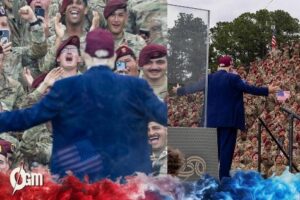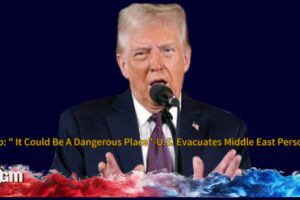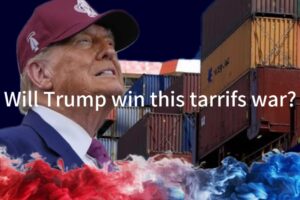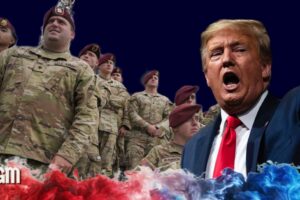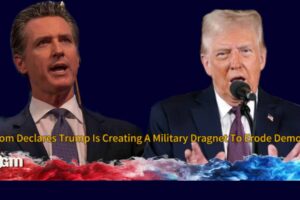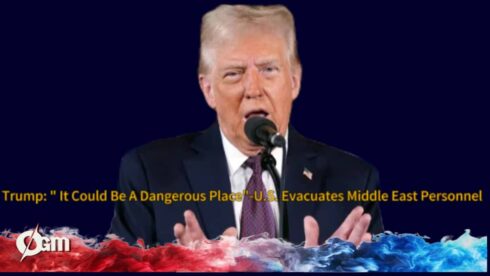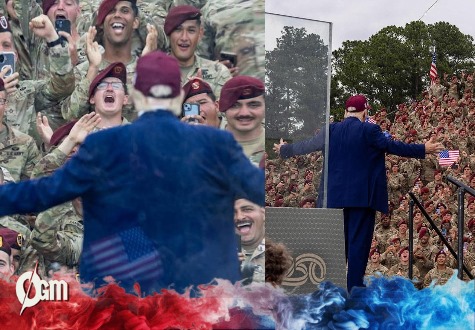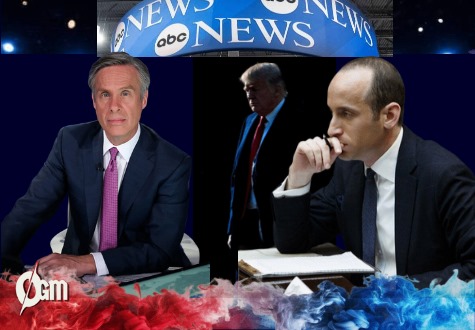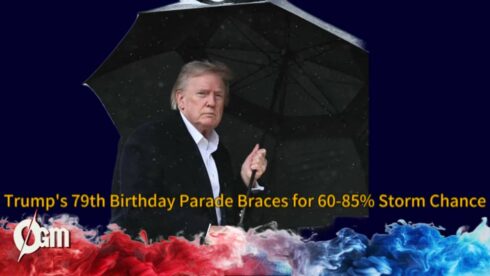Donald Trump opened the conversation bluntly: “It could be a dangerous place, we’ll see what happens.” The U.S. government has begun relocating non-essential embassy staff, military dependents, and civilian contractors from key Middle Eastern nations, including Iraq, Bahrain, Kuwait, and the United Arab Emirates. The partial evacuation reflects intelligence assessments that predict a sharp escalation in hostilities as regional actors inch closer to open confrontation.
The U.S. military’s Central Command is reportedly repositioning forces to less vulnerable locations. This decision comes amid increasing Israeli threats against Iran’s nuclear infrastructure and credible warnings that Tehran could retaliate against American assets if Israel initiates a strike. Trump’s cryptic tone—“you’ll have to see”—has only fueled global speculation about Washington’s next move.
Trump: “Iran Cannot Have a Nuclear Weapon” — The Red Line Drawn
Donald Trump emphasized with unwavering conviction: “Iran cannot have a nuclear weapon. We won’t allow it.” This simple yet powerful declaration underscores Washington’s long-standing policy toward Iran’s nuclear ambitions. Trump’s administration has always treated Iran’s potential for nuclear capability as a non-negotiable red line that must not be crossed under any circumstances.
The President indicated that the U.S. is prepared to leverage every available tool, including intensified economic sanctions, cyber warfare, and, if necessary, direct military engagement. American intelligence reports suggest Iran has accelerated its uranium enrichment program, heightening international anxiety over a possible clandestine weapons program inching dangerously close to completion.
Trump: “You’ll Have to See” — Covert Diplomatic Maneuvers Unfold
Donald Trump kept the world guessing: “You’ll have to see.” Behind closed doors, U.S. diplomatic channels remain active despite rising tensions. Special Envoy Steve Witkoff is reportedly scheduled for back-channel talks with Iranian Foreign Minister Amir-Abdollahian in Oman, aiming to cool tensions before they spiral into open conflict.
Simultaneously, high-level security briefings indicate that Israel may be preparing preemptive strikes on Iranian nuclear sites, with Washington quietly coordinating contingency plans. While official statements remain vague, leaked Pentagon documents reveal that U.S. forces have elevated their alert levels across multiple bases in the region, preparing for a range of possible outcomes.
OGMNews.COM
Donald Trump Warns: “Iran Cannot Have a Nuclear Weapon” — Strategic Moves Unfold
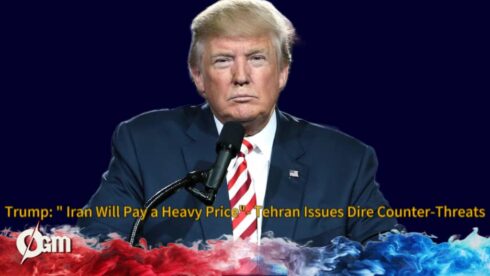
Donald Trump warned of broader consequences: “It could be a dangerous place,” and indeed, global markets responded instantly. Brent crude surged over 4% as reports of U.S. evacuations rippled through financial centers. Traders fear that any military clash between the U.S., Iran, or its proxies could disrupt vital oil shipping lanes through the Strait of Hormuz, which handles nearly 20% of the world’s oil supply.
Shipping insurers have raised premiums sharply, while the UK Maritime Trade Operations (UKMTO) issued rare navigational warnings to commercial vessels traversing the Gulf of Oman. The potential for conflict-induced supply chain disruptions has sent shockwaves through stock markets and intensified inflationary pressures already burdening global economies.
Trump: “Iran Will Pay a Heavy Price” — Tehran Issues Dire Counter-Threats
Donald Trump reaffirmed his firm stance: “Iran will pay a heavy price if they take hostile action.” Tehran’s military officials, however, have responded with defiant rhetoric. Iranian Defense Minister Brigadier General Mohammad-Reza Ashtiani vowed that any U.S. or Israeli aggression would be met with swift and overwhelming retaliation, potentially targeting American military installations scattered across the Middle East.
At the same time, Iranian leadership hints at reviewing Supreme Leader Khamenei’s religious fatwa that currently prohibits nuclear weaponization. This internal debate could mark a significant policy shift as hardliners advocate for nuclear deterrence in response to escalating threats—a development that could permanently alter the regional power balance.
Trump: “Maximum Pressure Works” — Washington’s Strategy of Sanctions and Deterrence
Donald Trump praised his administration’s enduring approach: “Maximum pressure works.” The multi-pronged strategy combines relentless economic sanctions, international diplomatic isolation, and targeted military deterrence. The goal remains clear: force Iran back to the negotiating table or cripple its economy until compliance becomes unavoidable.
While Biden’s administration has maintained many Donald Trump-era sanctions, the broader framework continues to hinge on strategic patience combined with credible threats of force. Trump’s remarks serve as both a warning and a reassurance to allies and adversaries alike: America remains ready to defend its interests and prevent Iran from crossing the nuclear threshold.


